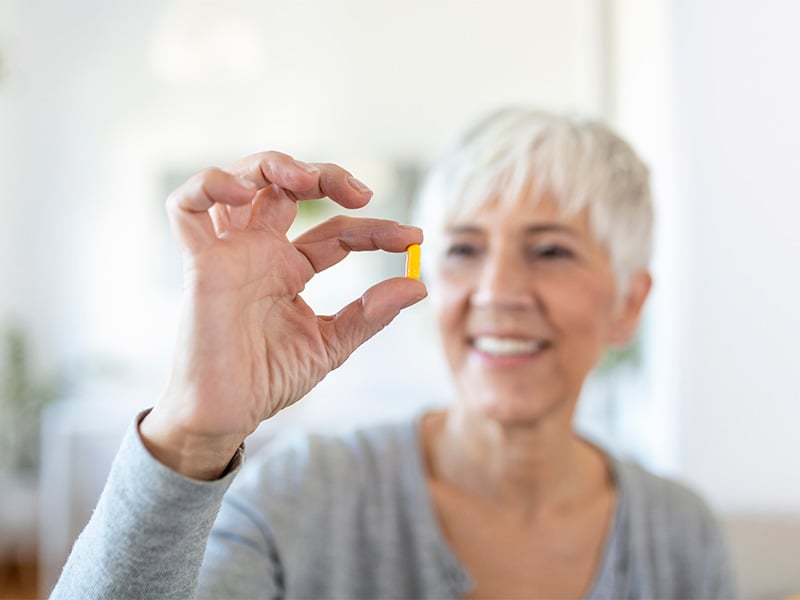How big is the problem of heart disease?
We have made great strides in the past 20 years, with many more people surviving heart attacks and strokes than they used to. But heart and circulatory diseases still cause a quarter of all deaths in the UK each year.
As a consultant physician at University College Hospitals NHS Foundation Trust, I still see too many young people turning up on the wards after a heart attack or stroke. It's really frustrating because, for most people, these are entirely preventable.
Some of my colleagues suggested we should consider giving everyone over 50 a ‘polypill’.
The UK sadly lags behind many other countries in preventing deaths from heart and circulatory diseases. In 2023, nearly 175,000 people across the UK died from these diseases, and around 49,000 of those were under 75.
We could be doing so much more to prevent heart attacks and strokes from happening.
How could medicines be used to help in the future?
Recently, some of my colleagues suggested we should consider giving everyone over 50 a ‘polypill’.
This would be a single tablet that combines a statin to lower cholesterol with medicines to reduce blood pressure.
The idea is to make it much easier to tackle 2 of the biggest risk factors for heart attacks and strokes at the same time.

Is giving everyone over 50 a polypill really the answer?
It might sound drastic, but there's a strong logic to it. We need to target the main risk factors before heart disease takes hold.
Many people think heart attacks only happen to those at very high risk, but that's not true. Most heart attacks happen in people with ‘average’ levels of risk, simply because there are far more people in that category.
So, if we only focus on those at highest risk, we'll miss a lot of people who could still benefit hugely from preventative care like taking medicines to lower cholesterol and blood pressure.
Everyone is different. But, after 50, your risk of heart disease roughly trebles every 10 years.
The science behind it is solid. We know that treating high cholesterol and high blood pressure together is much more effective at preventing heart attacks and strokes than just treating 1 alone.
The idea that huge swathes of the population would benefit from statins is also not new. It’s estimated that at least 8 million people in the UK already take them.
And in 2023, NICE (the National Institute for Health and Care Excellence), which gives advice to the NHS, recommended that statins could be considered for 15 million more people, as even those at a lower risk are likely to benefit.
Want to get fit and healthy?
Sign up to our fortnightly Heart Matters newsletter to receive healthy recipes, new activity ideas, and expert tips for managing your health. Joining is free and takes 2 minutes.
I’d like to sign-up
Why 50? Is that really the age we should start doing this?
The thinking behind focusing on those over 50 is that your risk of heart attack really starts to climb around this age.
Yes, everyone is different. But, after 50, your risk of heart disease roughly trebles every 10 years.
Age is a powerful risk factor, and with our population getting older, we need to address this head-on. If we don't get better at preventing heart disease now, we're going to see a huge surge in cases in the coming years.
It’s great that we're living longer, but the way we approach healthcare needs to catch up. We need to help people stay healthy for longer.
What about side effects?
That's a very important question. All medicines can have side effects, and some people would experience them from a polypill.
Statins themselves are very safe. Serious side effects, like severe muscle problems, are very rare – affecting less than 0.1 per cent of people.
The blood pressure medicine in a polypill is where we need to be more careful. If someone doesn’t have high blood pressure, taking blood pressure medication unnecessarily could cause dizziness, fatigue, or faintness.
Is a polypill the perfect solution, or are there other ways to do this?
I don't think a blanket polypill for everyone over 50 is necessarily the only answer. It's a good starting point for discussion, but we could be more targeted.
Some people would be better off with higher doses of statins and blood pressure medicines, or different medications altogether. We should be using the tools we have to better identify who needs what doses of medicines and levels of care, rather than just basing it on age.
Having said that, mass prevention strategies like this are likely to be essential to reduce pressure on the NHS sooner rather than later.
While healthy living – not smoking, being active, maintaining a healthy weight – is always crucial, for many, especially over 50, medicines can be a vital tool to further reduce their risk.
What would you say to people who are wary of taking pills?
It’s surprising to me that the idea of using proven medicines to prevent serious illness can be controversial. Especially when many people are happy to take supplements or unproven ‘health fixes’ without evidence to back them up.
We need to build trust in the power of safe and effective medicines to save lives.
Whether or not a polypill becomes a reality for everyone over 50, we need to become more comfortable with taking medicines that have been shown, time and time again, to be safe, effective and lifesaving.
Meet the expert
Professor Bryan Williams was appointed as British Heart Foundation's Chief Scientific and Medical Officer in 2023. He is Chair of Medicine at University College London and an NHS Consultant Physician at University College Hospitals NHS Foundation Trust.
What to read next...










